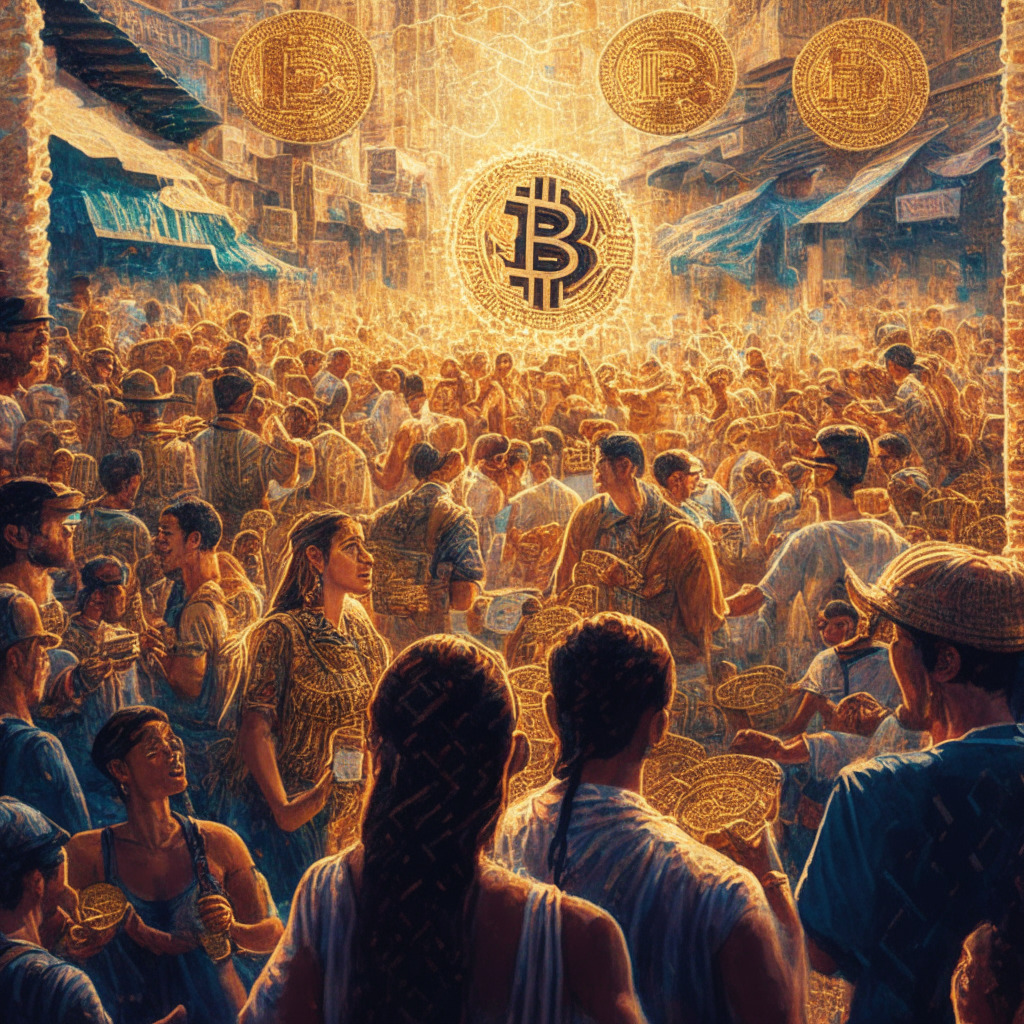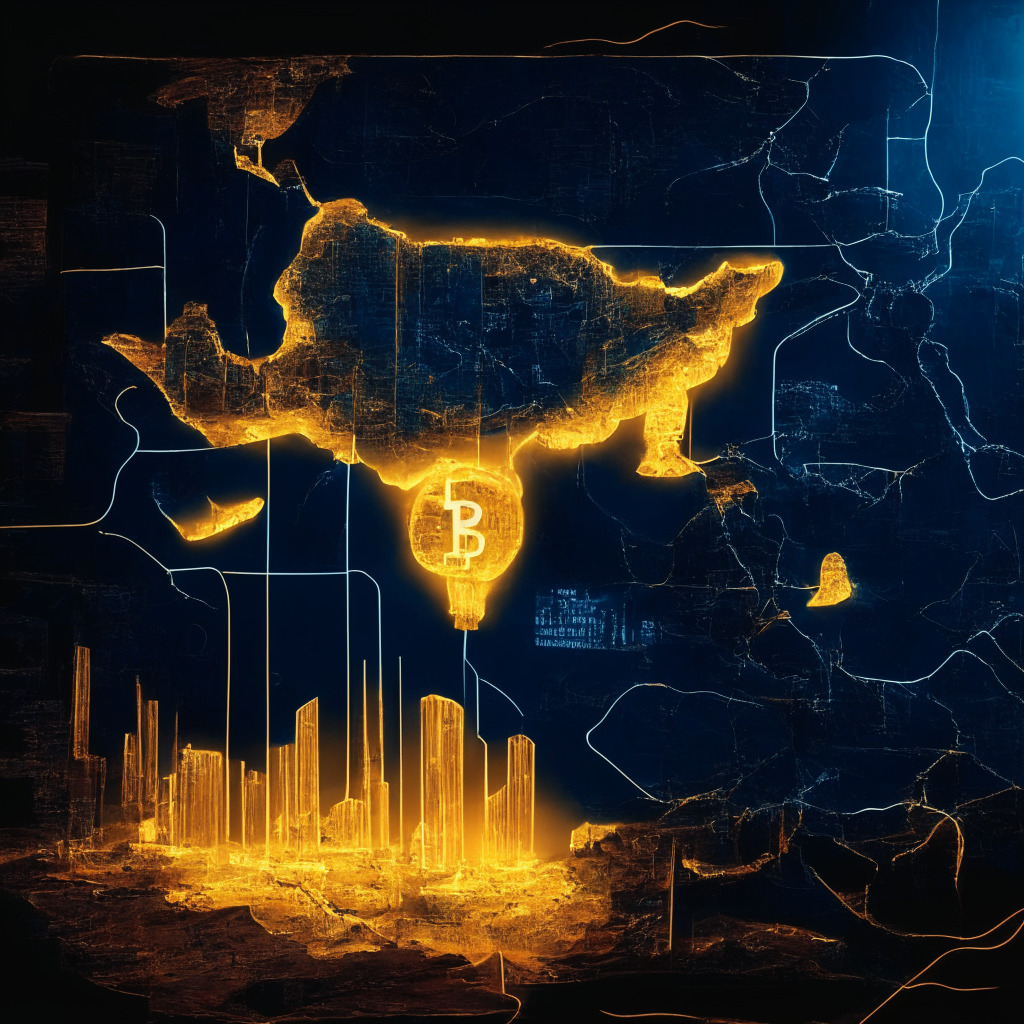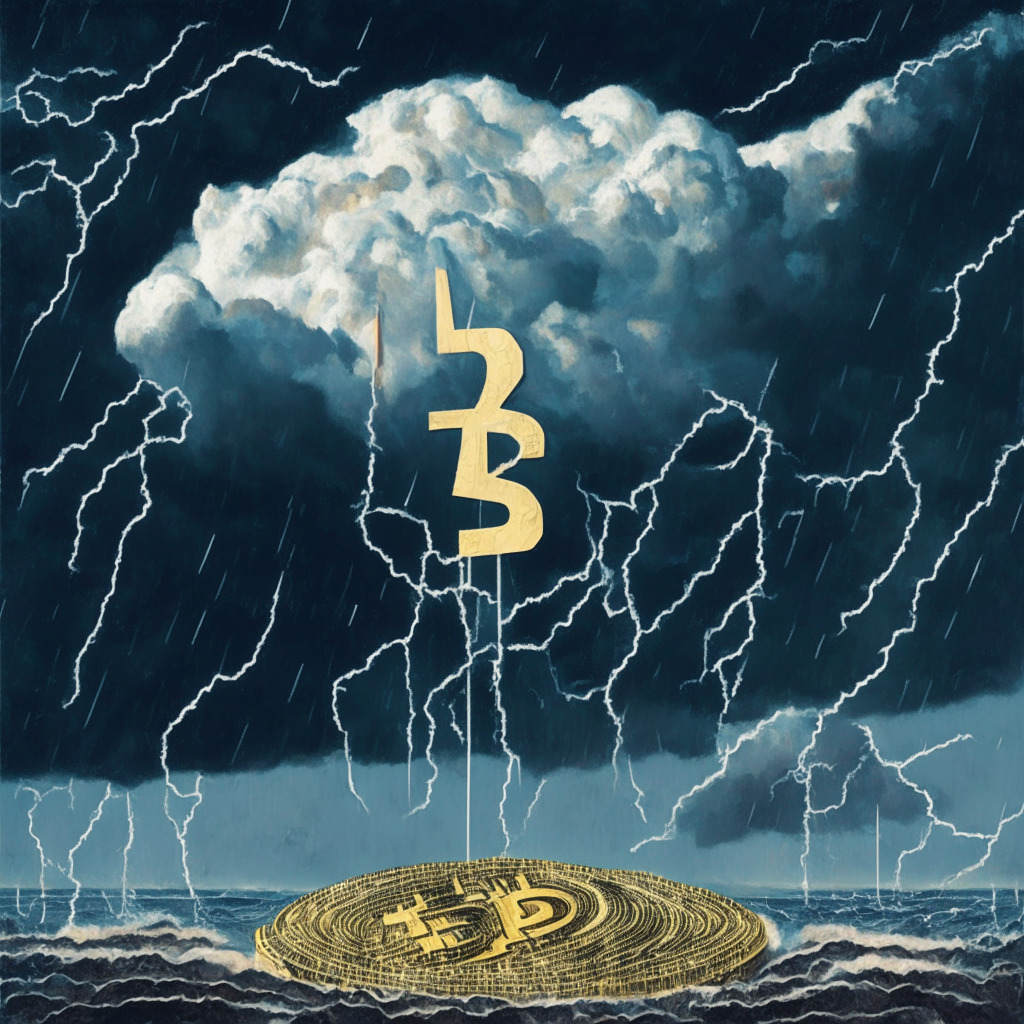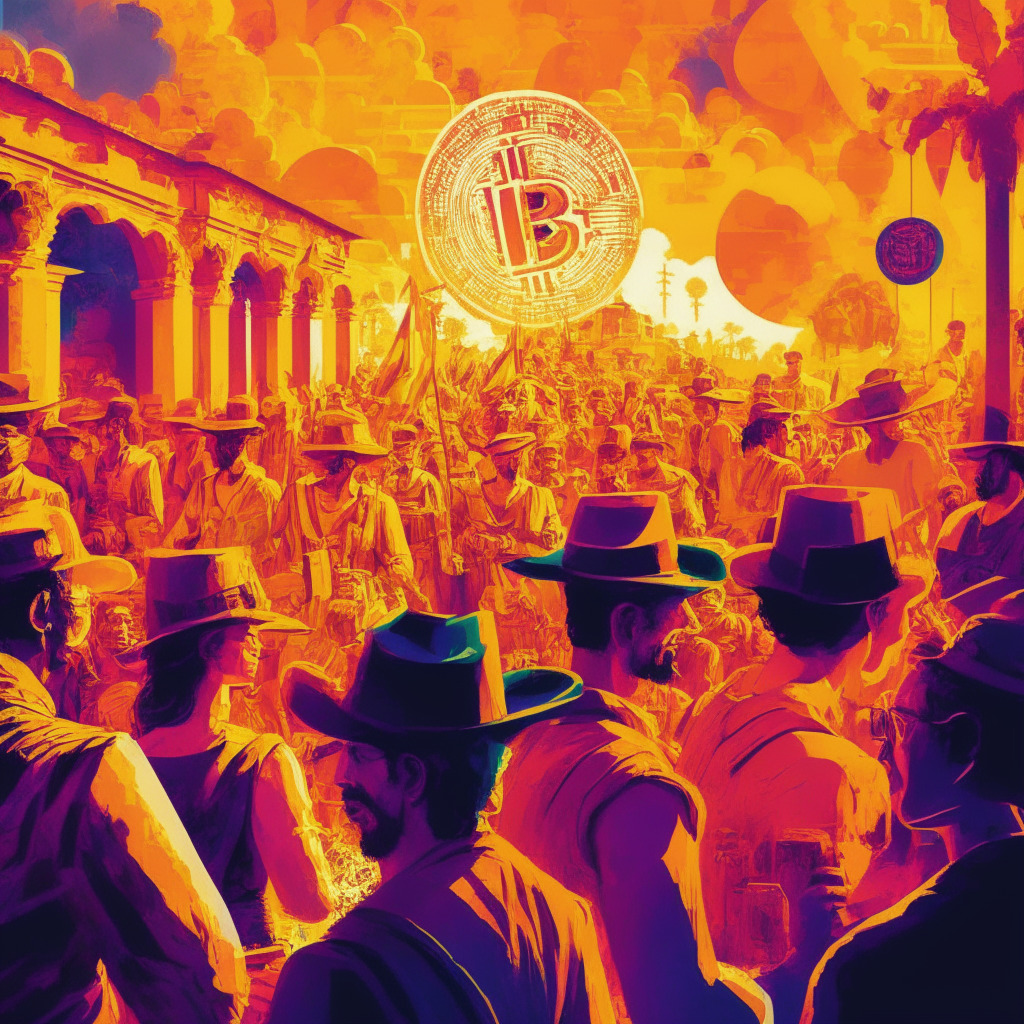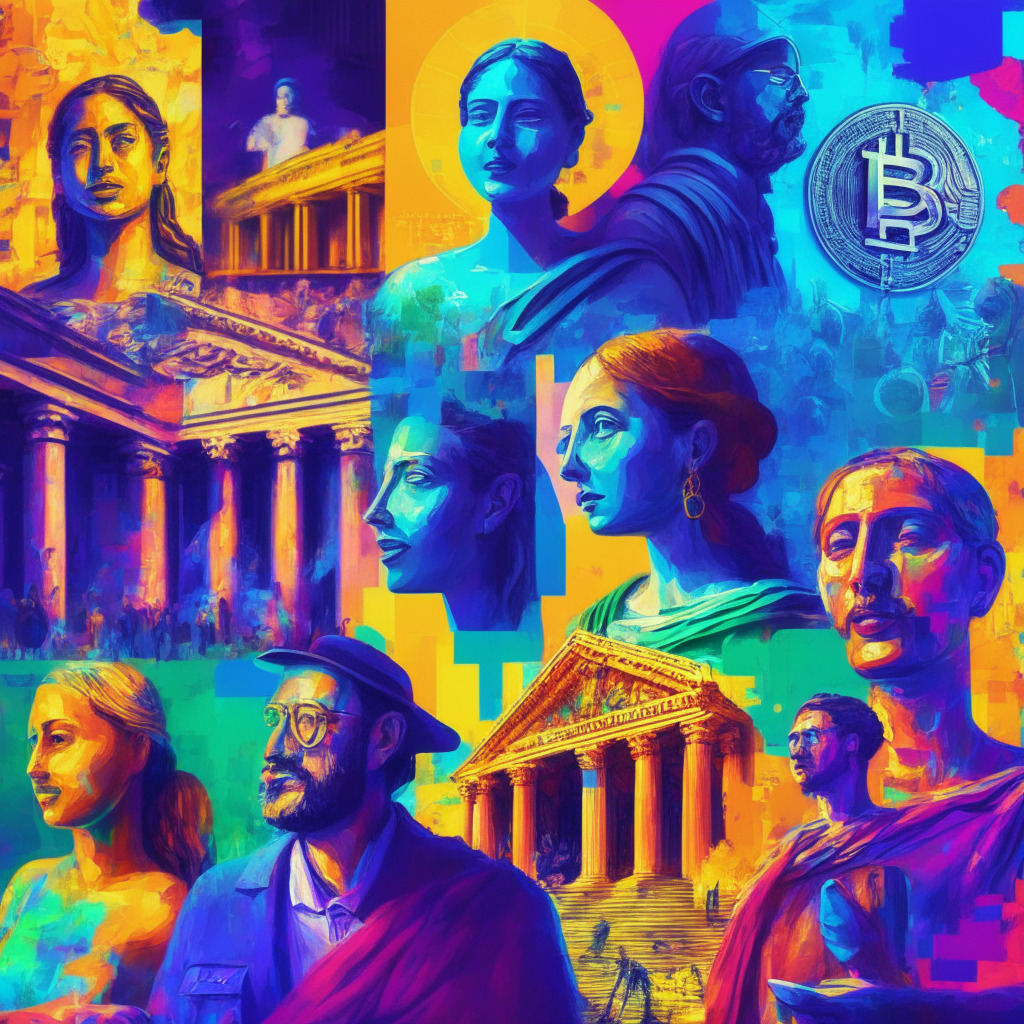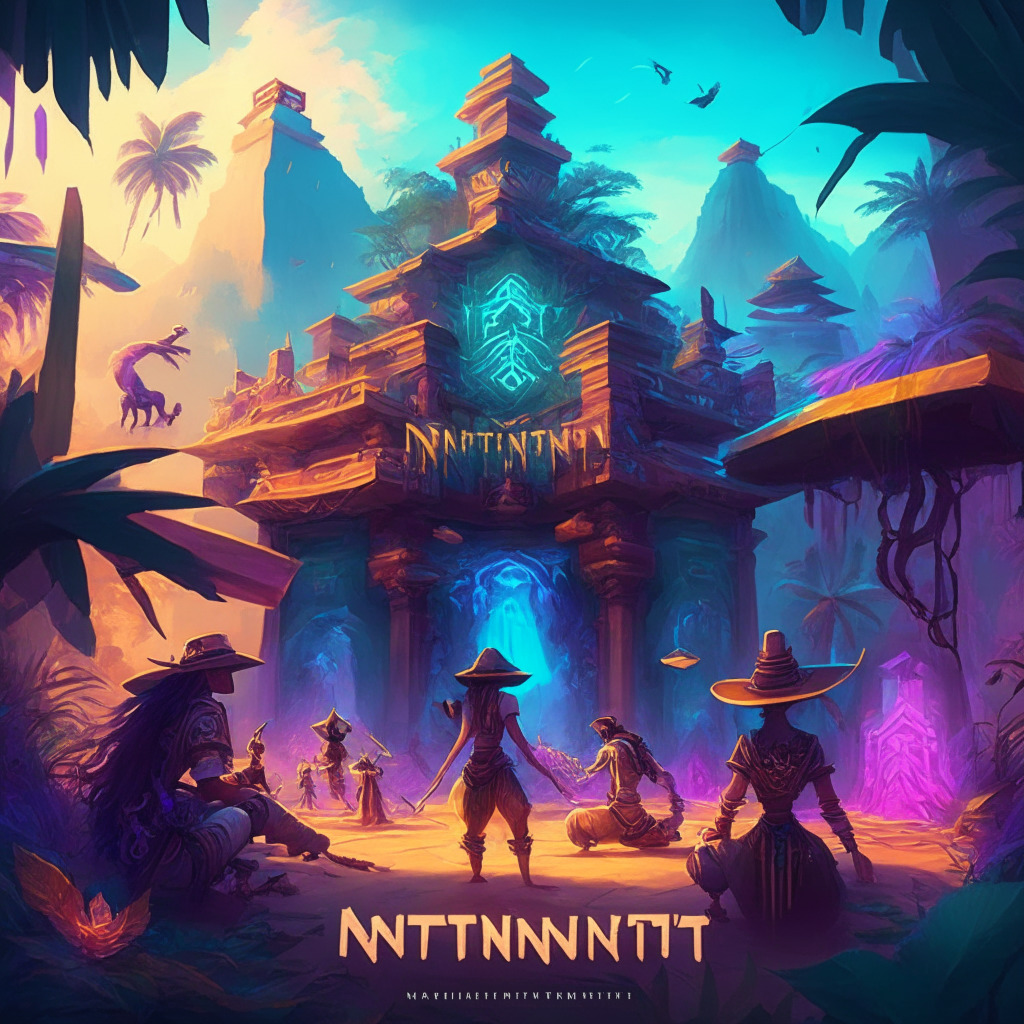Bitcoin payments firm Strike expands its ‘Send Globally’ service to Mexico utilizing the Lightning Network for fast and cheap transactions. This move addresses the needs of Mexican migrants facing high fees and slow settlements in cross-border payments, fostering innovation in remittance services.
Search Results for: Mexico
Mexico Embraces Bitcoin Lightning Payments: Analyzing Potential Impact and Challenges
Mexico’s top internet service provider, Total Play, integrated Bitcoin Lightning payments, increasing transaction speed and efficiency. This significant step towards complete institutional adoption of cryptocurrency allows Mexican users to pay internet bills with BTC via Total Play’s Lightning-based payments.
The Great Bitcoin Mining Divide: Affordable New Mexico vs. Pricey Hawaii and the Rising Cost of US Crypto Production
The cost of producing a single Bitcoin (BTC) has risen significantly in the United States […]
Exploring Crypto Expansion in Latin America and the Caribbean: Boons and Challenges
The joint study by IDB and CCAF shows remarkable growth in cryptocurrency in Latin America and the Caribbean since 2016. The report highlights the need for understanding this emerging market and ensuring its secure and sustainable growth through collaborative efforts.
Sanctioned Wallets and Blockchain’s Crime Deterrence: Navigating Regulation and Innovation
“The US Treasury recently sanctioned an Ethereum wallet linked to illicit fentanyl trafficking, underlining how blockchain technology can help curb illegal activities. Despite its anonymity, the crypto world can be vulnerable to exploitation by nefarious entities. While some see increased scrutiny as encroachment on privacy rights, without regulation, the blockchain could become a haven for miscreants.”
New Leadership at MobileCoin: Charting the Course for Global Expansion and Swift Crypto Transactions
MobileCoin’s CTO, Sara Drakeley, has been promoted to CEO to further the company’s goal of swift transnational payments. The company plans global expansion, focusing on regions with strong cryptocurrency usage like Africa and Latin America. New app Moby promises rapid transactions while maintaining user privacy.
Tether’s Ascent: Top Holder of US Treasury Bills and What That Means for Crypto
“Tether, one of the world’s leading buyers of US Treasury bills, has increased its holdings to $72.5 billion. Despite the complexities expansion brings, this represents the growing mainstream acceptance of digital currencies and their incorporation into the traditional financial world.”
UK’s New Crypto Rules: Balancing Financial Security and Innovation
The UK’s Financial Conduct Authority now requires Virtual Asset Service Providers to gather and validate information on crypto transactions, even beyond local jurisdiction. This regulation, known as the Travel Rule, aims to counter money laundering and terrorist financing, yet raises concerns regarding privacy and curbing innovation within the growing crypto industry.
Binance Expands Crypto-to-Bank Services in Latin America: Opportunities and Challenges
Binance is expanding its reach in Latin America offering a crypto-to-bank account payment scheme, named ‘Send Cash’. This allows users from nine Latin American countries to transfer crypto funds directly into bank accounts, leveraging Binance’s native crypto payment technology platform, Binance Pay. Binance’s initiative aims to overcome challenges linked to the financial exclusion in Latin America.
Num Finance’s nCOP: Bringing Blockchain Innovations to Colombia and Beyond
“Num Finance has launched nCOP, a token pegged to the Colombian peso, utilizing the Polygon framework for transfer, payment, saving, and earning through blockchain. Stablecoins offer flexibility and can be used for remittances, store of value, and potentially yield profit.”
World Mobile’s Decentralized Service Expansion: Democratizing Internet Access with Blockchain and AI
World Mobile, a decentralized mobile internet provider, has expanded its services via Google Play, allowing users in select countries to leverage blockchain for cost-effective internet access. This blockchain-based project promotes telecom sharing economy and integrates AI solutions for enhanced customer service, thereby democratizing technology and wealth access.
Financial Misconduct and Crypto: The Sam Bankman-Fried Story Paralleling Global Cryptocurrency Concerns
Sam Bankman-Fried faces allegations of fraud and money laundering involving his crypto exchange, FTX. Meanwhile, the Bank of International Settlements and financial stability directors raise concerns about crypto’s potential to enhance financial risks in underdeveloped economies. Balancing financial stability with fostering innovation remains a critical challenge.
Crypto’s Promise and Peril: Emerging Economies Face Financial Risks from Unregulated Cryptocurrencies
“Cryptocurrencies could potentially elevate financial risks in less developed economies, warns a study by the Bank for International Settlements (BIS). Emerging economies could face prohibitive legislation, pushing crypto activities into obscurity and bringing potential market risks.”
Universities as Powerhouses of Web3 Talent: LBank Labs’ CEO Insight and the Resultant Implications
“Czhang Lin, CEO of LBank Labs, emphasizes the crucial role of universities in the future of Web3. Despite the current market sentiment, Lin maintains there is potential for student-led talent in emerging technologies like AI and Web3. He observed a growing interest among students in decentralized finance (DeFi), liquid staking derivatives (LSD), zero-knowledge (ZK), and decentralized applications (DApps), indicating a possible paradigm shift in the future.”
Tether’s Billion-Dollar Quarterly Profits: Financial Health or Cause for Concern?
“Tether’s self-reported asset value of over $86 billion surpasses the market cap of its USDT stablecoin. While the brand boasts a $1 billion profit, skepticism arose from its financial history and reduced cash holdings, opening conversations about the need for a full-fledged audit.”
Bitso and Stellar: Unleashing Financial Freedom or Inviting Cyber Threats?
“Latin American crypto exchange, Bitso, partners with Stellar’s Anchor Network to facilitate global trade in USDC across Argentina, Colombia, and Mexico. While such a partnership signals major progress, it equally amplifies concerns about market fluctuations, security vulnerabilities and potential for money laundering within the transnational operations of crypto exchanges.”
Ledger’s Ambitious Expansion into Latin America: A Leap of Foresight or a Gamble?
“French crypto hardware wallet creator, Ledger, is expanding into Latin America, promising to strengthen its supply chain. With crypto adoption surging, Ledger’s move could greatly benefit potential customers by providing easier product access. Plans include collaboration with a US-based logistics firm to widen the distribution network across the region.”
Bridging the Gap: Gnosis Fuses Decentralized Payments with Visa’s Traditional Channels
Gnosis is pioneering the integration of decentralized payment systems with conventional channels, launching products allowing users to spend their digital assets from wallets via Visa’s system. Gnosis Pay and Gnosis Card, a self-funded Visa debit card connected to an on-chain wallet, aim to simplify the movement of crypto-assets and reinforce the Gnosis blockchain ecosystem.
Navigating Crypto Regulation: Rpay’s License Triumph and its Ramifications for Global Crypto Trade
“Stablecoin wallet Rpay secured a key license from the U.S. Office of Foreign Asset Control (OFAC), allowing operations in Venezuela. This indicates a potential shift in regulatory landscape despite crypto firms previously exiting due to complexities and in-house risk tolerance.”
Crypto Ransom in Retail: Exploring Bomb Threat Scams and Blockchain Reputation
US retailers like Kroger, Target, Walmart, and Amazon’s Whole Foods Market have faced a wave of bomb threats from scammers demanding ransoms in Bitcoin, gift cards or money. The extortion attempts, which reportedly target each store only once, raise concerns about the reputation of cryptocurrencies and the potential skepticism around the technology’s safety and legitimacy, despite its widespread legitimate use.
Revolutionizing Industries: Blockchain’s Promise, Challenges, and the Path Forward
The future of blockchain technology holds promise in revolutionizing industries through decentralization and security. Despite advantages like fostering trust and improving efficiency, challenges like scalability, energy consumption, and regulatory uncertainty must be overcome to unlock its full potential.
Binance Integrates Bitcoin Lightning Network: Boost for Faster Transactions or Limited Adoption?
Binance plans to integrate the Bitcoin Lightning Network for faster, cheaper transactions, addressing scalability issues. Despite its potential, the Lightning Network’s liquidity is less than 0.5% of Ether locked in DeFi contracts, raising questions about mainstream adoption and its impact on cryptocurrencies and cross-border payments.
Generative AI Impact: Accelerated Automation and Economic Growth vs. Ethical Concerns
A McKinsey & Co. report predicts that by 2045, generative AI may fully automate 50% of today’s work activities, including decision-making and management, with 75% value creation in customer service, marketing, software engineering, and R&D. Adoption rates will differ globally and raise concerns over fake news, information manipulation, and ethical issues.
Crypto Card Adoption Surges in Brazil: Daily Use, Pros, Cons, & Mainstream Challenges
Cryptocurrency credit card adoption is surging in Brazil, with users increasingly spending digital tokens on daily expenses. Crypto cards, such as Binance Card, are encouraging mainstream adoption by integrating digital currencies into everyday payments like groceries and dining. This trend reflects the growing interest in cryptocurrencies across Latin America, driven partly by fiat inflation concerns.
Colombia’s Crypto Boom: Financial Inclusion Meets Regulatory Challenges
Colombia has witnessed a surge in crypto adoption, with Bitso trading platform experiencing a tenfold increase in retail clients since last year. The country’s potential for mainstream crypto adoption offers opportunities for broader financial inclusion and effective tax collection measures. However, clear regulations and policies are crucial to ensure investor protection and long-term viability of the crypto ecosystem within Colombia.
Cryptocurrency and Fentanyl Crisis: Senator Warren’s Regulatory Push Amid Alarming Stats
Sen. Elizabeth Warren calls out cryptocurrency’s role in fentanyl drug transactions, highlighting her Digital Asset Anti-Money Laundering Act. Cryptocurrency enabled 90 Chinese suppliers to exchange precursor drugs, producing $54 billion worth of fentanyl pills, causing concerns over crypto’s potential to facilitate illegal activities.
The Orb: Unveiling Worldcoin’s Controversial Iris Scanning Crypto Project
OpenAI CEO Sam Altman’s Worldcoin project aims to create a global ID, currency, and a crypto payment app, raising concerns and skepticism over its biometric data requirement. With The Orb as its central tool, Worldcoin recently raised $115 million in Series C round, garnering investor enthusiasm despite the concerns.
Bitfinex and OrionX Boost Crypto Adoption in Latin America: Opportunities and Risks Examined
Bitfinex partners with Chile’s leading cryptocurrency exchange, OrionX, to encourage widespread adoption in Latin America and support local education programs. With its growing significance, it’s crucial for Latin America to maintain financial stability and protect users amid expanding crypto market involvement.
Fentanyl Precursors Paid in Crypto: The Dark Side of Digital Currencies and the Opioid Crisis
Chinese chemical manufacturers are increasingly accepting cryptocurrencies like Bitcoin and Tether for fentanyl ingredients, with transactions totaling over $27 million. Elliptic’s report reveals a 450% year-on-year increase in transaction volume and raises questions about digital currencies’ role in illegal drug trade. Increasing regulation may become crucial to address this issue.
Cryptocurrencies Fueling Fentanyl Trade: Unveiling the Dark Side of Digital Currency
Chinese chemical suppliers for Fentanyl, a synthetic opioid linked to thousands of U.S. drug overdose deaths, reportedly accept cryptocurrencies like Bitcoin and Tether. Blockchain analytics firm Elliptic published a research report identifying 80 China-based firms offering Fentanyl precursors in exchange for cryptocurrencies, raising concerns about the misuse of digital currencies for illicit substances and posing questions about regulatory efforts to combat crypto’s role in drug trafficking.
Decentralized Internet: Unleashing Web5’s Potential and Addressing its Dangers
Block’s Web5 project, through its division TBD, aims to revolutionize the Internet by enabling tamper-proof, self-owned identifiers and secure digital certificates for various aspects, while raising security concerns. Its remittance app for Africa and Mexico, utilizing Bitcoin and stablecoins, is set to streamline transactions but raises questions about regulatory compliance and fluctuating values.
Axie Infinity: Origins Hits App Store with Free Non-NFT Starter Characters & NFT Integration
Axie Infinity: Origins, a modified version of the popular play-to-earn crypto game, is now available on Apple’s App Store with free non-NFT starter characters. Targeting key markets in Latin America and Asia, the game intends to eventually convert these non-NFT Axies into NFTs while also allowing NFT holders to move Axies into the app.
